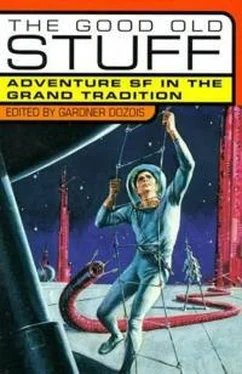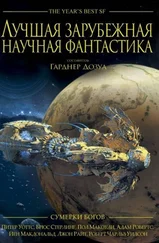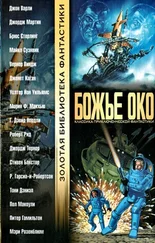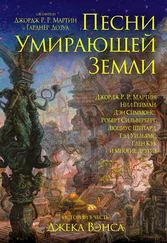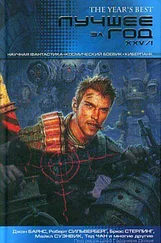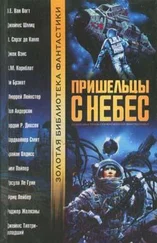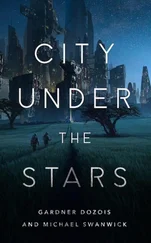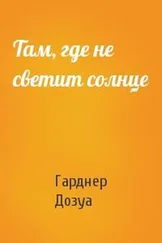Гарднер Дозуа - The Good Old Stuff
Здесь есть возможность читать онлайн «Гарднер Дозуа - The Good Old Stuff» весь текст электронной книги совершенно бесплатно (целиком полную версию без сокращений). В некоторых случаях можно слушать аудио, скачать через торрент в формате fb2 и присутствует краткое содержание. Год выпуска: 1998, ISBN: 1998, Издательство: St. Martin's Griffin, Жанр: Фантастика и фэнтези, на английском языке. Описание произведения, (предисловие) а так же отзывы посетителей доступны на портале библиотеки ЛибКат.
- Название:The Good Old Stuff
- Автор:
- Издательство:St. Martin's Griffin
- Жанр:
- Год:1998
- ISBN:0-312-19275-4
- Рейтинг книги:3 / 5. Голосов: 1
-
Избранное:Добавить в избранное
- Отзывы:
-
Ваша оценка:
- 60
- 1
- 2
- 3
- 4
- 5
The Good Old Stuff: краткое содержание, описание и аннотация
Предлагаем к чтению аннотацию, описание, краткое содержание или предисловие (зависит от того, что написал сам автор книги «The Good Old Stuff»). Если вы не нашли необходимую информацию о книге — напишите в комментариях, мы постараемся отыскать её.
The Good Old Stuff — читать онлайн бесплатно полную книгу (весь текст) целиком
Ниже представлен текст книги, разбитый по страницам. Система сохранения места последней прочитанной страницы, позволяет с удобством читать онлайн бесплатно книгу «The Good Old Stuff», без необходимости каждый раз заново искать на чём Вы остановились. Поставьте закладку, и сможете в любой момент перейти на страницу, на которой закончили чтение.
Интервал:
Закладка:
I’ve found, to my surprise, that many people don’t seem to care whether the old stuff is available or not, or whether they’ve read it or not. The attitude seems to be that nothing that wasn’t in print five years ago is worth bothering with anyway. Who cares whether a bunch of moldy old pulp stories are available to be read?
Unfortunately, to feel that way is to assign huge chunks of the genre’s history to the dumpster—and to be ignorant of the past means that you can’t even understand (or appreciate) the present, let alone have the slightest idea where you’re going in the future, or why.
Besides, I don’t happen to think that these old stories are moldy—in fact, I think that most readers will get as much or more entertainment value out of this book as they would out of any modern volume. Old wine may not necessarily always be the best but it’s not always vinegar, either.
As usual with these retrospective anthologies, though, once I actually sat down to put it together, I found that there were many more stories that I would have liked to use than I had room to use. Winnowing-screens were clearly called for.
Ever since the specific science fiction adventure story began to precipitate out from the larger and older tradition of the generalized pulp adventure story, the form that slowly emerged as being most specific to science fiction, (differentiating it from the kind of Lost World/Lost Race adventure that went all the way back into the middle of the 19th Century—it was usually different in tone as well from the more solemn, slower-paced, Visit To A Future Society story popular with Hugo Gernsback and other editors, which, especially after Wells, tended toward Utopian polemic and ran to guided tours of the Great Steam Grommet Works) was the Space Adventure story.
Although the SF adventure story has always had—and still has—other branches as well, the Space Adventure story or the Space Opera remains to this day probably the most characteristic sort of SF adventure tale. Thus that’s the kind of story I’ve primarily stuck with for this anthology (although I’ve also included a story that takes place on an Alternate Earth, as well as a story that takes place in a devastated Future Earth after a nuclear holocaust, and I’d like to pretend piously that I did it to be inclusive and to cover all the bases, but really, truth be known, it was just because they were such good stories, and had affected me so powerfully as a kid, that I couldn’t resist them).
I also decided that, however adventure-driven it was, the story a also had to qualify as genuine science fiction, by the aesthetic standards and the standards of scientific knowledge of its time; I didn’t want the stereotypical “Bat Durston” stories, where a cowboy story is retold as a science fiction story by the simple expedient of swapping the term “horse” for “spaceship” and “six-gun” for “blaster”, and so forth; this requirement also omitted much of the stuff from the Weird Tales of the ‘30s and the Planet Stories of the ‘40s, which were just horror stories or sword & sorcery tales recast as science fiction in a similarly naive one-for-one way. So Planetary Romances, Other World Adventures, Space Adventure, and Space Opera were acceptable only if they were more than translated versions of standard boilerplate adventure stories common to other pulp genres, if they had some quality of vision or invention or intent that solidly centered them as adventures germane to science fiction, stories that wouldn’t be possible—with the same kind of impact, anyway—if translated to other forms.
(Of course these judgment calls are subjective. I believe that I can discern subtle differences in flavor between the Space Adventure, the Space Opera, the Planetary Romance, and the tale of off-Earth Other World adventure—later on, in the next volume, I’ll claim to be able to discern differences in flavor between cyberpunk, hard science fiction, radical hard science fiction, and the New Baroque Space Opera as well—just as I can discern differences between Vanilla, French Vanilla, Vanilla Fudge, and Chocolate Chip ice-cream, but the differences in flavor are subtle, hard to articulate, and, in the end, what tastes like Vanilla to me might taste like Chocolate Chip to you.) Even after making these decisions, though, the potential stories I wanted to use outweighed the room available for them by a factor of three or four. If I’d been editing the multi-dimensional, infinitely expandable ideal edition of this anthology, I’d have gladly put all of them in, and so been able to cover the entire development of the space adventure tale with something like the kind of completeness it deserves, starting all the way back in the Super-science days of the ‘20s and ‘30s. Unfortunately, out here in the real world, this volume could only contain a certain finite amount of material, so something else had to go. More winnowing-screens were called for, and I had further decisions to make—some fairly Draconian decisions, at that—as to what historical periods I was going to cover in this book, and which periods I was not going to cover.
In order to make these decisions more understandable, we should really pause here for a comprehensive history of the development of the genre space adventure tale, from its beginnings in the Gernsback Amazing Stories of the late ‘20s all the way through to the ‘90s, but we don’t have room for that. Suffice it to say—in a brutally compressed and distorted version of the truth, with no allowance made for dozens of exceptions and contradictions—that by the time the earliest of the stories collected here saw print, after World War II, science fiction had passed through what is sometimes referred to retroactively as the “Superscience” era of the ‘20s and ‘30s, the first great Age of the Space Opera, when writers such as E. E. “Doc” Smith, Ray Cummings, Raymond Z. Gallun, Edmond Hamilton, John W. Campbell, Jack Williamson, Clifford D. Simak, and others greatly widened the stage upon which the science fiction adventure story could be played; before E. E. Smith, for instance, SF writers rarely ventured outside of the solar system for settings for their stories, but by the end of the “Superscience” era, the rest of the Galaxy—and, indeed, the rest of the universe—was their playground. They also increased both the permissible scope for an adventure and the size of the stakes at risk; it was not for nothing that Edmond Hamilton, for instance, was referred to as “World-Wrecker” or “Planet-Buster” Hamilton, and the space fleets of immense mile-long space-dreadnoughts armed with awesome world-shattering super-scientific weapons that have continued to prowl through deep space throughout all of the subsequent history of science fiction (and on out of the print media and onto television and movie screens, and onto computer monitors in the form of space-adventure computer games) were first launched on their paper voyages in the pages of the pulp magazines of the ‘20s and ‘30s.
By 1948, though—which is when the earliest story here, A. E. van Vogt’s “The Rull,” appeared—we’d also gone through the Campbellian revolution in science fiction, when the new editor of Astounding magazine, John W. Campbell, had, by sheer force of will (aided by the example of radical new writers such as Robert A. Heinlein and Isaac Asimov), changed the consensus definition of what a “good” science fiction story should be like, downplaying and devaluing the more garish and melodramatic lowest-common-denominator pulp stuff in favor of better-written, more thoughtful material that actually made a stab at rigor and scientific possibility, the aim being to produce the “kind of story that could be printed in a magazine of the year two thousand ^.r).” as a contemporary story of the day, a story with “no gee-whiz,” where the author would “just take the technology for granted.” (There would be exceptions, of course, and much adventure stuff, including some rather garish Space Opera, continued to appear in Astounding —and later, Analog , after the magazine changed its name. a move that in itself was symbolic of Campbell’s desire to move away from pulpish-ness and toward respectability and unsmiling polemic purpose throughout Campbell’s lifetime; but that was the often-stated goal. And, in spite of Campbell’s occasional seduction by fast-paced widescreen adventure stories too juicy to resist—such as Frank Herbert’s Dune , which, in spite of some canny ideas about the nature of society that were just the sort of thing that Campbell liked, was fundamentally a baroque Space Opera on a scale not seen since the Superscience era—that was the direction in which he consciously tried to steer the magazine.) One result of the Campbellian revolution—an ironic one, since Campbell himself was one of the most widescreen planet-busters of the “Super-science” era—was to make the Space Adventure tale or the Space Opera somewhat declasse: outmoded, outdated, passed-by, no longer the arena where the Cutting Edge work of the day was being done.
Читать дальшеИнтервал:
Закладка:
Похожие книги на «The Good Old Stuff»
Представляем Вашему вниманию похожие книги на «The Good Old Stuff» списком для выбора. Мы отобрали схожую по названию и смыслу литературу в надежде предоставить читателям больше вариантов отыскать новые, интересные, ещё непрочитанные произведения.
Обсуждение, отзывы о книге «The Good Old Stuff» и просто собственные мнения читателей. Оставьте ваши комментарии, напишите, что Вы думаете о произведении, его смысле или главных героях. Укажите что конкретно понравилось, а что нет, и почему Вы так считаете.
